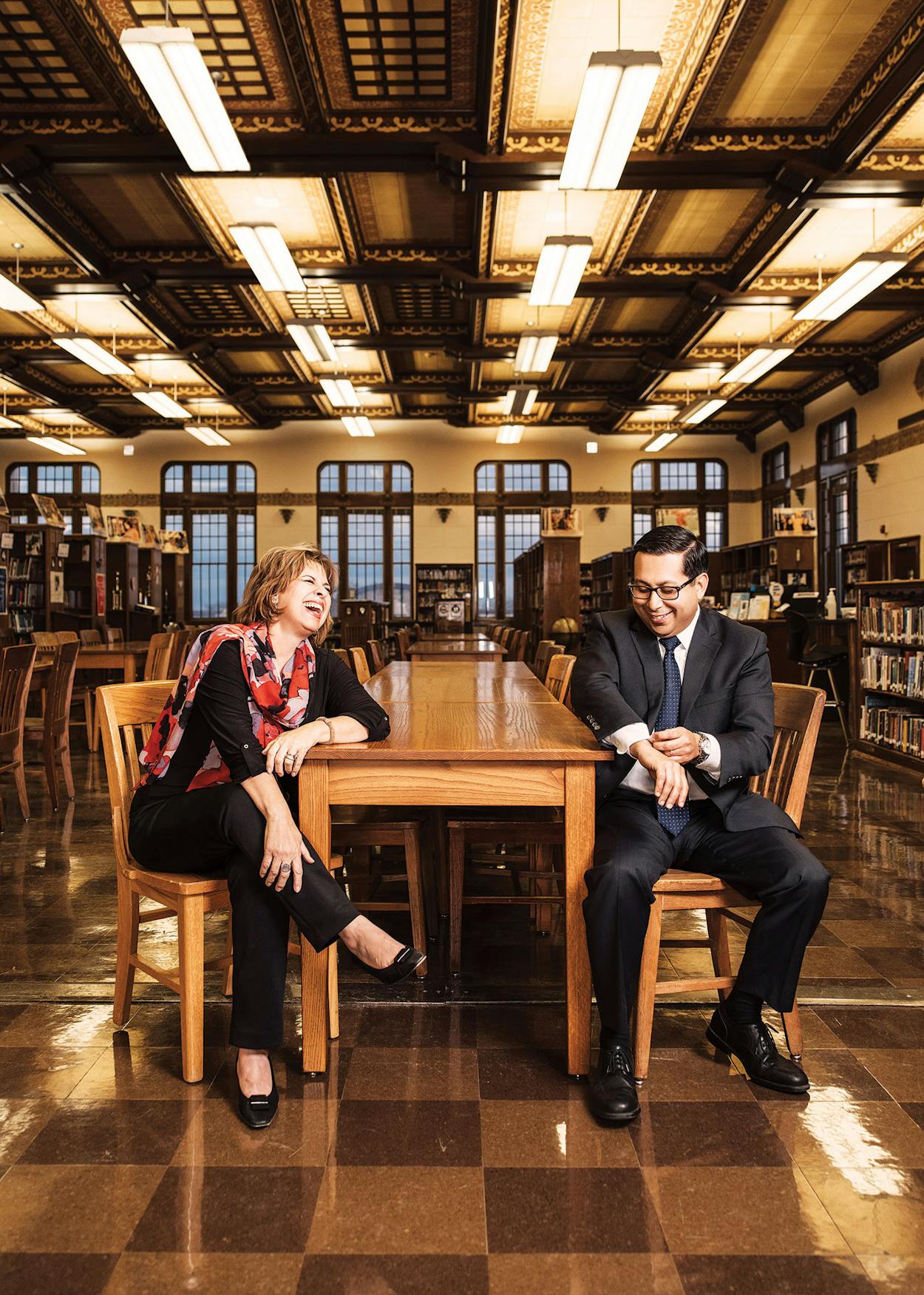Leticia Van de Putte represented San Antonio in the Texas legislature from 1991 to 2015, serving as a state senator for twenty years, including as a member of the Senate Committee on Education. Since 2015, Diego Bernal has represented San Antonio in the Texas House of Representatives. He currently serves as the vice chairman of the House Committee on Public Education.
Senator Van de Putte and Representative Bernal both graduated from Thomas Jefferson High School, in the classes of 1973 and 1995, respectively. They met at Jefferson High to talk about how to improve public education in San Antonio and the challenges of advocating for the city’s students at a state level.
As told to Charley Locke.
Leticia Van de Putte: When I was in third grade, I was suspended for speaking Spanish accidentally on the playground. It was against school rules. Our parents stopped speaking Spanish in the household. It wasn’t that our parents weren’t proud of their culture, but they wanted us to excel, and they wanted to protect us.
Diego Bernal: I had the same experience in kindergarten. My mom said, “This is your first day in school and you’re already getting into trouble. We’re going to make sure you don’t get off on the wrong track.” You grow into an adult who has lost a lot of your original language because your parents wanted you to do well.
LVP: That’s changed. Learning Spanish is seen as a business asset, at least here in San Antonio. But I don’t think that’s seen as a value in other communities.
DB: The conversation we need to have is that dual language is the way to go. But that’s not the statewide attitude at all. Compared to before, more and more of the state looks like San Antonio, and not just because it’s browner. I mean, people say that, and that’s certainly true, but when we settled on the current form of school finance in the nineties, poor kids made up about 47 percent of students in Texas. Now, using that same measure of poverty, it’s about 60 percent. And the school finance system has not adjusted to that new reality.
LVP: The population of Texas is going to mirror San Antonio in 20 or 25 years, so we’re basically a laboratory. If we don’t solve our challenges, Texas is not going to solve its challenges.
DB: I’m visiting all the SAISD schools for the second time now, and the question I’m asking teachers this time that I didn’t ask last time is, can you tell the difference between no pre-K to half-day pre-K to full-day pre-K? Quality pre-K is an absolute game-changer. I’m going to go back to poverty every time, and I don’t know if I’ll call pre-K an equalizer, but it’s close. It’s really powerful.
LVP: That’s what I love about Diego: He didn’t wait for people to come knock at his door. He went to the schools and he said, “What can I do? Show me.” To be that credible, having the firsthand knowledge of listening to teachers—I was just so proud. It’s been remarkable to see him take that lead.
DB: When I got to the legislature, I blew up the senator’s phone pretty often, asking for advice. She has one phrase that I use all the time: “Representative is not a title. It’s a job description.” I always took that to heart. Because of our political affiliations and the way we see the world, there’s a lot of defense to be played, but that doesn’t mean you should ever stop trying to bring things home for your community that make it better.
More from this collection
San Antonio at 300
From billionaire Kit Goldsbury to artist Ana Fernandez to former NBA All-Star Tim Duncan, seventeen San Antonians reveal why their historic city may be the most interesting place in America right now. Read more.







